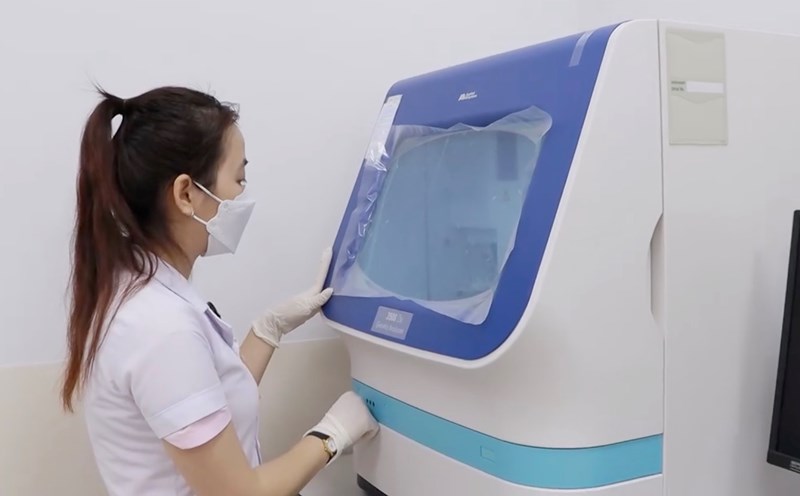Complaining after losing children twice
Doctors have received a case, Ms. L's family (Hanoi) has a history of losing children twice. In 2016, their first son was born healthy. However, not long after, the child's health began to decline abnormally and he died. Before that, Ms. L's family also took her child to the doctor but could not find the obvious cause.
Ms. L's second pregnancy in 2018, the whole family lit up hope, hoping that life would be rewarded with a complete joy. But fate once again tested them, just one month after giving birth, the second boy suffered from prolonged pneumonia, and treatment did not improve. A year later, the second child also left the couple, leaving the couple with endless pain.
Dr.BS Bui Thi Phuong Hoa, Head of Scientific and Training Research Department - Genetic Doctor at Nam Hoc Hospital and Infertility Hospital, said: Through detailed exploitation of the history of the couple, Ms. L and her families and their families. At the same time, the doctor also thoroughly analyzed the medical history of the two babies. From the information collected, the doctor said the main cause may come from genetic mutations.
After the process of implementing gene sequences and consultations with experts, the doctor finally found the cause. Ms. L carries mutations causing disease on the Cybb gene - genetic diving diving bonds X chromosomes, causing chronic granuloma. The disease shows signs of prolonged pneumonia recurring from the newborn stage, poorly responding to treatment. Mother is a good person carrying a gene that does not manifest, a son carrying a genetic gene from her mother will get sick and die. Genetic results are in accordance with clinical criteria and genetic classification.
Chronic hatta U is a genetic disorder also known as primary immunodeficiency disease (Primary Immunodeficiency Disease - PIDD). The disease occurs due to a genetic breakdown from the mother. When you have this disease, your immune system cells are weakened. Therefore, the body is susceptible to dangerous infections and lead to death. Chronic seed tumors are not common, the disease occurs in about 1/200,000 - 250,000 people.
Dr. Phuong Hoa advised the couple to perform assisted reproductive methods: in vitro fertilization (IVF) combined with embryo testing (PGT-M) to select disease-free embryos. In March 2024, the couple successfully transferred the embryos. By the end of 2024, Ms. L's family happily welcomed her baby healthy, completely free of illness.
According to Dr. Bui Thi Phuong Hoa: Smobile diseases are genetic disorders caused by changes in one gene. Based on the genetic mechanism, the disease is divided into two main groups: The group of preferential single-gen dotxes - the father or mother has a dot bien that causes a genetic disease that also causes the child to get the disease. The group of sub Duoc genetic dot bien - both parents are healthy people carrying dot bien genes, children born if they receive both dot bien genes from their parents will get sick and even risk death".
Families with children with single-gen diseases often face health, financial and mental challenges. The treatment process for these diseases is not only complicated but also prolonged, creating heavy pressure on families and putting a great burden on the whole society.
To protect future generations from the risk of single-gen genetic diseases, genetic testing and early diagnosis of single-gen genetic diseases are becoming an important step forward, not only helping to detect abnormalities early but also opening up opportunities for timely intervention. Subjects that should consider doing genetic testing: couples about to get married for premarital examination, pregnant women, families with a history of single-gen disease, couples with children with single-gen disease, etc. Depending on each case when going for examination, the specialist will give specific advice.
Dr. Bui Thi Phuong Hoa recommends that families with both husband and wife having genetic ingredients related to single-gen genetic diseases should receive genetic consultation before planning to become pregnant and give birth. This not only helps parents understand the risk of giving birth with the disease but also supports them in choosing the right assisted reproductive methods.
In particular, the technique of genetic testing before embryos is recommended to ensure a healthy birth, avoiding risks during natural pregnancy. This initiative is an important foundation for building a complete and happy family.











